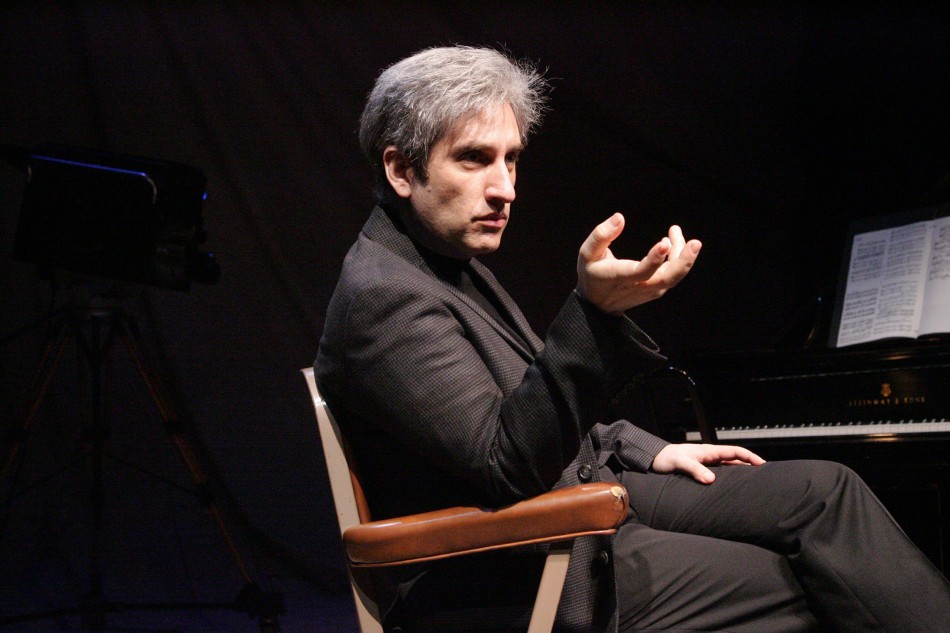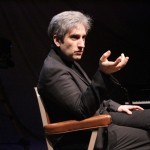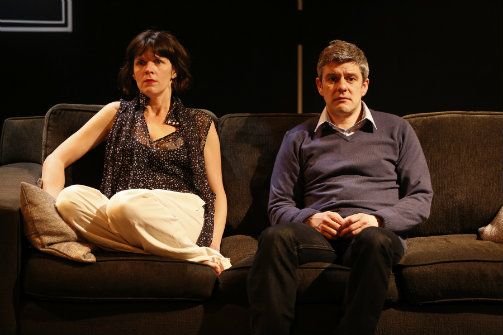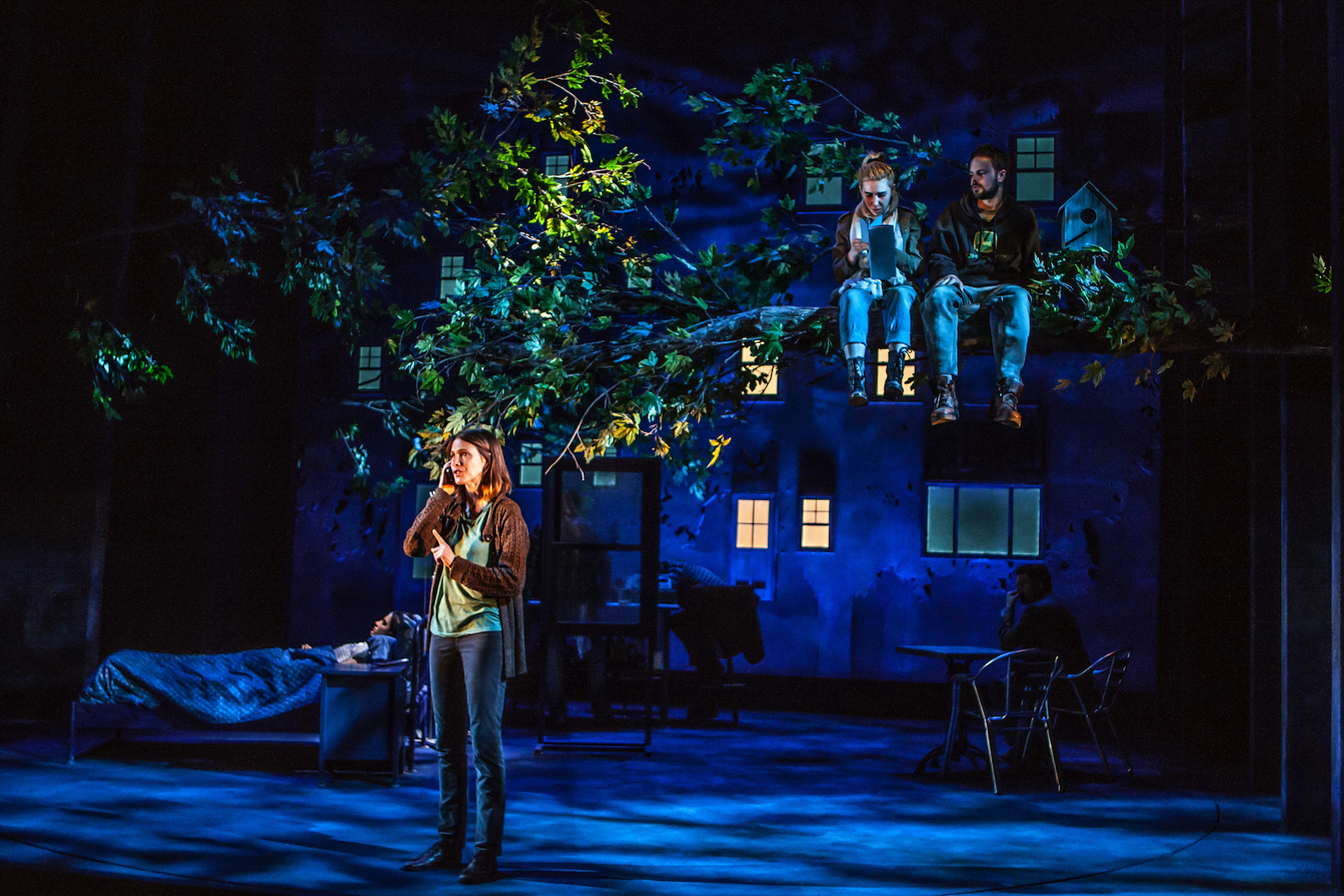NY Music/Theater Review by Marilyn Lester
As the lights went down in The Town Hall it was playwright Hershey Felder who took the stage. “You’re a live audience”, he announced; “the performance is being broadcast live by WFMT radio, so laugh and applaud loudly (appreciative laughs). I’ll be coming back in a moment as another person.”


In truth, Bernstein’s path to greatness was fairly blessed. The drama, therefore (as it usually does), lies in exploiting the demons of human existence – and finding the thread that will carry the story forward with flair. Felder’s through-line rests with Bernstein’s father, Jewishness and Jewish mysticism, all neatly interwoven into the tale as the facts of “Lenny” unfold.
Bernstein senior was a paradoxical and successful Russian immigrant who was able to give his son a very comfortable and privileged upbringing. He was a religious Jew who both discouraged and encouraged his son’s musical career. As he matured into greatness and prominence, the Maestro proved to be no less complex a personality than his father (whose presence is felt throughout the play), seeking the key to Love, and God.
Felder is successful at inhabiting Bernstein without imitating him and he allows the music itself to be a strong character in the tale. The music not only entertains but advances the action in just the way it should. Felder is a gifted concert pianist and renditions of Bernstein’s “Symphony No. 1 Jeremiah,” “I Hate Music,” and selections from “On the Town,” “Candide,” and, of course, “West Side Story” are masterful and enthralling.
Felder also has the knack for transmitting even the most serious information with humor – he’s funny and amusing. One waggish tale is the story of Bernstein’s acceleration to instant fame on November 14, 1943. On this day he was called on to replace an ailing Bruno Walter as conductor for the New York Philharmonic Orchestra. Now, the back story emerges with perfect drama and humor: Lenny reveals the night before he’d been partying till all hours, only to be prematurely woken up with the summons to step in for Walter – with a massive hangover and no prep time.
Bernstein’s homosexuality is handled with discreteness and dignity. It is alluded to early in the piece in Lenny’s 1940 meeting with Serge Koussevitzky (to secure a place in the Boston Symphony Orchestra’s summer institute, Tanglewood). After establishing the solidity of Bernstein’s 1951 marriage to Costa-Rican born actress Felicia Cohn Montealegre, Felder tackles the issue of Bernstein’s preferences. At age 58, he reveals, Bernstein could no longer contain his “true nature,” and engaged in a torrid affair that lasted less than a year. Yet the tolerant wife was loved and cherished in tandem with the Maestro’s dalliances with men.
Demons are dark things, and despite the humor in “Maestro Bernstein,” there is a dark undertone to the piece, which ends on a blue note (also called a worried note – pun intended). Bernstein went to his grave “worried” that he was never taken seriously as a composer, and that his legacy would boil down to “West Side Story.” At the beginning of “Maestro Bernstein,” Lenny declares that Gershwin’s Rhapsody in Blue is overrated; it’s a series of pop tunes looking for a composition. As the play closes, Bernstein declares the same about the music of “West Side Story.” Felder finishes with a brilliant, symphonic and utterly transportive rendition of Somewhere – an undisputed masterpiece within a stunning masterpiece.
Personnel for “Maestro Bernstein” include direction by Joel Zwick, stage management by Trevor Hay and projection design by Andrew Wilder. Additionally: Francoise-Pierre Couture, scenic design/production co-design/original lighting design; Erik Carstensen, sound design/production manager; and Christopher Rynne, lighting design.
Maestro Bernstein – A Play With Music Written And Performed By Hershey Felder, Town Hall 2014 Summer Season: Broadway Preludes series, July 17, 2014 at 8 pm. The Town Hall, 123 West 43rd Street, 212-997-1003, www.thetownhall.org























